Posted on 12/4/2023

In the hustle and bustle of daily life, it's easy to overlook the small booklet resting in your glove compartment – your car's owner's manual. However, this unassuming document holds a wealth of information that can save you money, extend the life of your vehicle, and make your time on the road smoother. Here's why reading your owner's manual is more important than you might think. Understanding Your Vehicle Your owner's manual is like a key to understanding your vehicle. It contains detailed information about your car's specific make and model, including: Maintenance Schedules Your manual outlines the recommended maintenance schedule for your car. This includes oil changes, tire rotations, and other essential services. By following these guidelines, you can prevent major problems down the road. Technical Specifications From tire pressure to ... read more
Posted on 11/29/2023
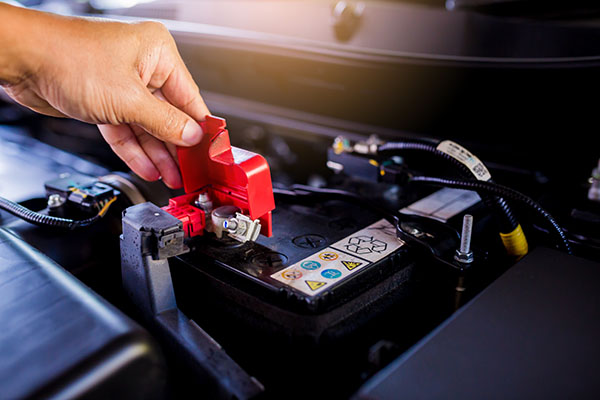
Greetings, automobile enthusiasts, and welcome to a thorough examination of the fundamental components that give life to your vehicle. Today, we will take a deep dive into the intricate workings of the battery and starter, the dynamic duo responsible for igniting your car's engine. Through this exploration, we will analyze the complex network of connections between these components, identify their unique characteristics, and uncover the secrets of effective maintenance. Our journey promises to provide not only valuable mechanical insights but also a newfound appreciation for the vital components of your dependable automobile. The Connection Between Battery and Starter The battery and starter dance hand in hand, each relying on the other for a seamless performance. Picture this: your car is a dormant creature in a parking lot, the battery supplying the power needed for the st ... read more
Posted on 10/28/2023
.jpeg)
Your vehicle's tires are vital for your daily drive, bearing the weight of your car and ensuring a smooth, safe journey. However, they aren't invincible. Tires wear unevenly due to various factors, and without proper care, you might find yourself facing uneven tread patterns, reduced performance, and a shorter tire lifespan. It's time to unveil the secrets of keeping your wheels rolling smoothly, so keep on reading! What Are Tire Rotations? Tire rotations are a maintenance practice where your vehicle's tires are moved from one position to another. The goal is to ensure even wear across all tires, extending their life and enhancing performance. This process typically involves switching the front tires with the rear ones or moving them diagonally. But why does it matter? When Should I Consider Tire Rotations?Mileage Milestones As ... read more
Posted on 9/29/2023

Driving without brake lights is not just a bad idea - it's a safety hazard! Brake lights are your vehicle's way of communicating with other drivers on the road. They signal your intentions and help prevent accidents. So, what happens when these crucial lights decide to go MIA? 1. Burned-Out Bulbs: One of the most common reasons for brake light failure is simply a burned-out bulb. These bulbs have a limited lifespan, and when they reach the end of their journey, they go dark. Solution: Replacing the bulb is relatively straightforward. Refer to your vehicle's manual to locate and access the brake light bulb. Ensure you choose the correct replacement bulb, and follow the manufacturer's instructions to install it. 2. Faulty Brake Light Switch: The brake light switch, located near the brake pedal, is responsible for activating the brake lights when you press the brake pedal. Solution: If your b ... read more
Posted on 8/31/2023
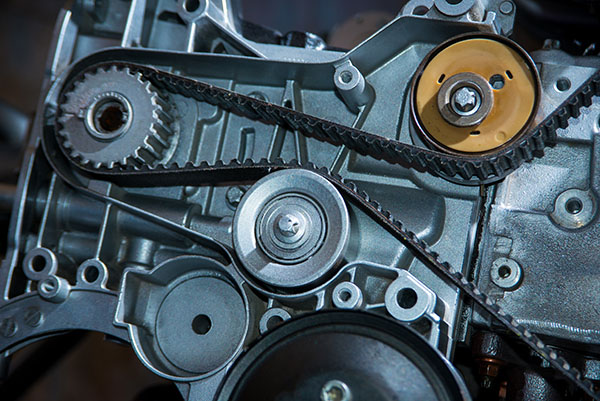
There's something reassuring about the purr of a well-tuned engine, but when a high-pitched squeak interrupts the symphony under your car's hood, it's time to take action. That unsettling squeaking sound often points to a worn-out or misaligned belt. Before you rush to the auto repair shop, why not try your hand at fixing that pesky squeaking belt right at home? In this DIY guide, we'll walk you through the steps to silence the chirp and restore harmony to your engine bay. Step 1: Safety First Before you dive into any car repair task, it's essential to ensure your safety. Park your vehicle on a flat surface, engage the parking brake, and pop the hood. Remember, always let the engine cool down before touching anything under the hood to avoid burns. Step 2: Diagnose the Culprit Start the engine and carefully listen to the source of the squeak. Most commonly, it's the serpentine belt or one of the accessory belts (like the alte ... read more
Posted on 7/30/2023
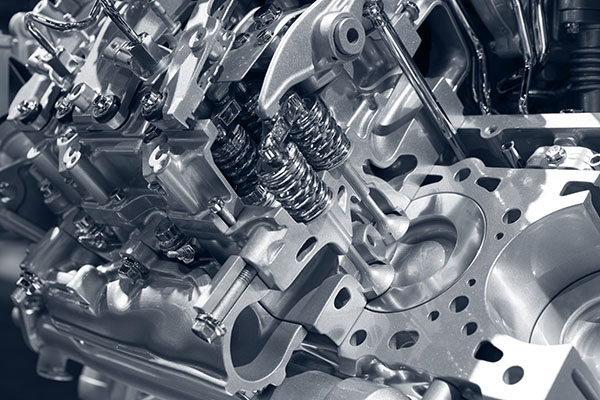
The heart of any vehicle engine lies in its internal combustion process, and at the core of this are the valves. Often overlooked but essential to engine performance, valves play a crucial role in controlling the flow of air and fuel into the combustion chambers and expelling exhaust gasses. If you want to learn about these simple, yet important components, make sure to join us in this article and we will go over everything you need to know! Intake and Exhaust Valves There are two main types of valves - the intake and the exhaust. Intake valves are responsible for allowing the mixture of air and fuel to enter the engine's combustion chambers. When the engine's piston moves down on its intake stroke, a vacuum is created within the cylinder. The intake valve opens at precisely the right time, allowing the air-fuel mixture to be drawn in from the intake manifold. The timing and duration of the valve opening are meticulously controlled by the engine's c ... read more
Posted on 6/30/2023
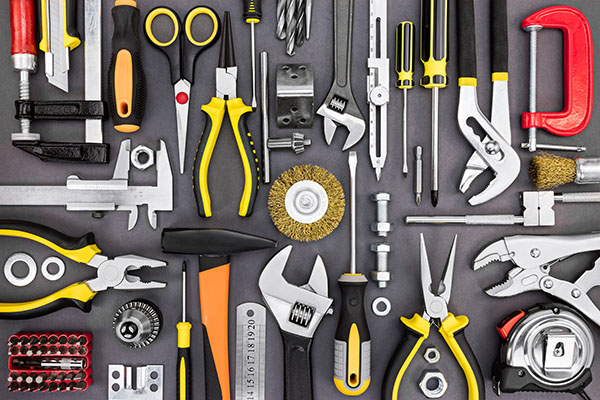
For car repair enthusiasts, having the right tools at your disposal is crucial to tackling automotive projects with confidence and efficiency. Whether you're a DIYer or an aspiring mechanic, having a well-stocked toolbox can make all the difference in successfully completing repairs and maintenance tasks. Here are a few must-have items that you should put in your tool armory! 1. Socket Set Let's start with the obvious. A quality socket set is an essential component of any car repair enthusiast's toolkit. It includes a variety of sockets in different sizes to fit bolts and nuts of various dimensions. Look for a set that includes both metric and standard sizes to cover a wide range of applications. Additionally, a ratchet handle and a set of extensions will provide flexibility and ease of use. 2. Wrenches A set of combination wrenches is another fundamental tool for any car repair enthusiast. These wrenches have an open end on one side ... read more
Posted on 5/31/2023
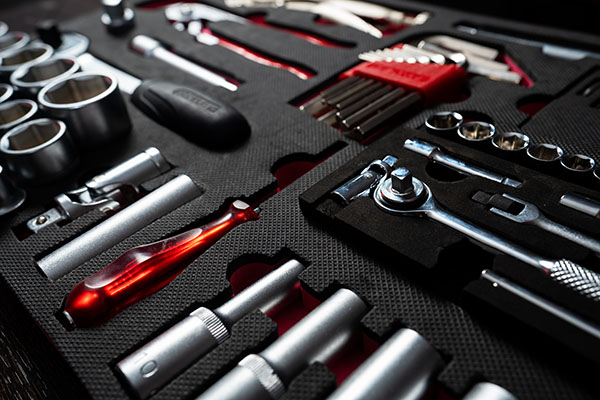
Whether you're a seasoned DIY mechanic or someone who likes to handle basic car maintenance tasks, having a well-equipped car garage is essential. Even the smallest repair can last hours with the wrong tools. That's why we have compiled a short list of tools that will help you quite a lot in the garage. Car-Specific Tools: Spark plug tool - used specifically for spark plug removal/installation Torque wrench - a wrench that gives a signal when the desired torque is reached Oil filter wrench - a wrench specifically designed to fit around an oil filter Jack/jack stand - used to lift a car safely Socket Set and Wrenches A complete socket set is a "must" of any car garage. It should include a range of metric and standard sizes to accommodate various nuts and bolts found in your vehicle. Additionally, invest in a set of combination wrenches for tasks that require more torque or when access is limited. Screwdrivers ... read more
Posted on 4/30/2023
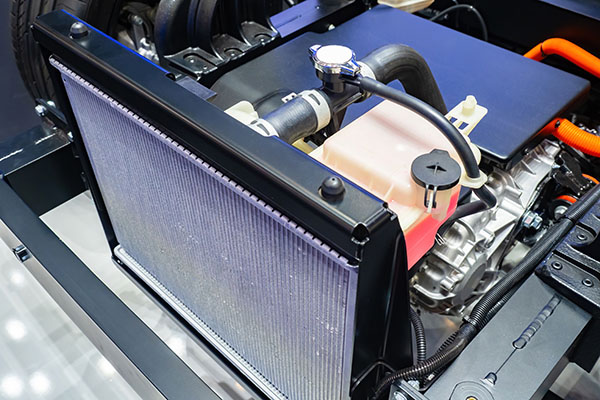
First of all, let's start with a simple explanation of what the cooling system does. As the name implies, its main job is to cool and keep parts from overheating. The parts we are talking about are all of the moving components in an engine - from the cylinders to the block itself. This is done by the constant circulation of a coolant liquid through a closed loop. We will take a look at the main components of a cooling system and what they exactly do, down below. Main components of the cooling system: Engine block Coolant Pipes Radiator Cooling fan Heater Sensors Thermostat Water pump The engine block serves as the foundation of the cooling system, allowing coolant to flow freely through its holes and crevasses. It is made of metal, allowing it to aid in heat dissipation, ensuring optimal cooling performance. The cooling system operates by circulating a liquid to collect and transfer heat. Typically, the coolant consists of filtered water with a small amo ... read more
Posted on 3/29/2023
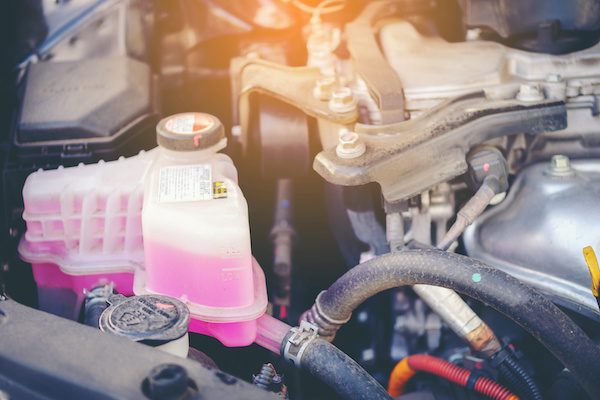
The cooling system in your car keeps your engine from overheating and also helps it run more efficiently. You need to pay attention when something goes wrong with your cooling system. Whether it be a minor issue or something more serious. Here are some signs that there may be problems with your cooling system. Weakened Engine Performance One of the most obvious signs of a faulty cooling system is when your engine starts to run poorly. If you notice that your temperature gauge is higher than normal or if the engine is overheating and running rough, this could indicate that something is wrong with your car's coolant system. A Clanking Noise Under the Hood If you hear a clanking noise under the hood, it could be a sign of a failing water pump. The water pump circulates coolant through your engine and helps keep it at an ideal temperature. If this piece breaks or gets damaged, it will cause your engine to overheat. A Burning Smell From the E ... read more